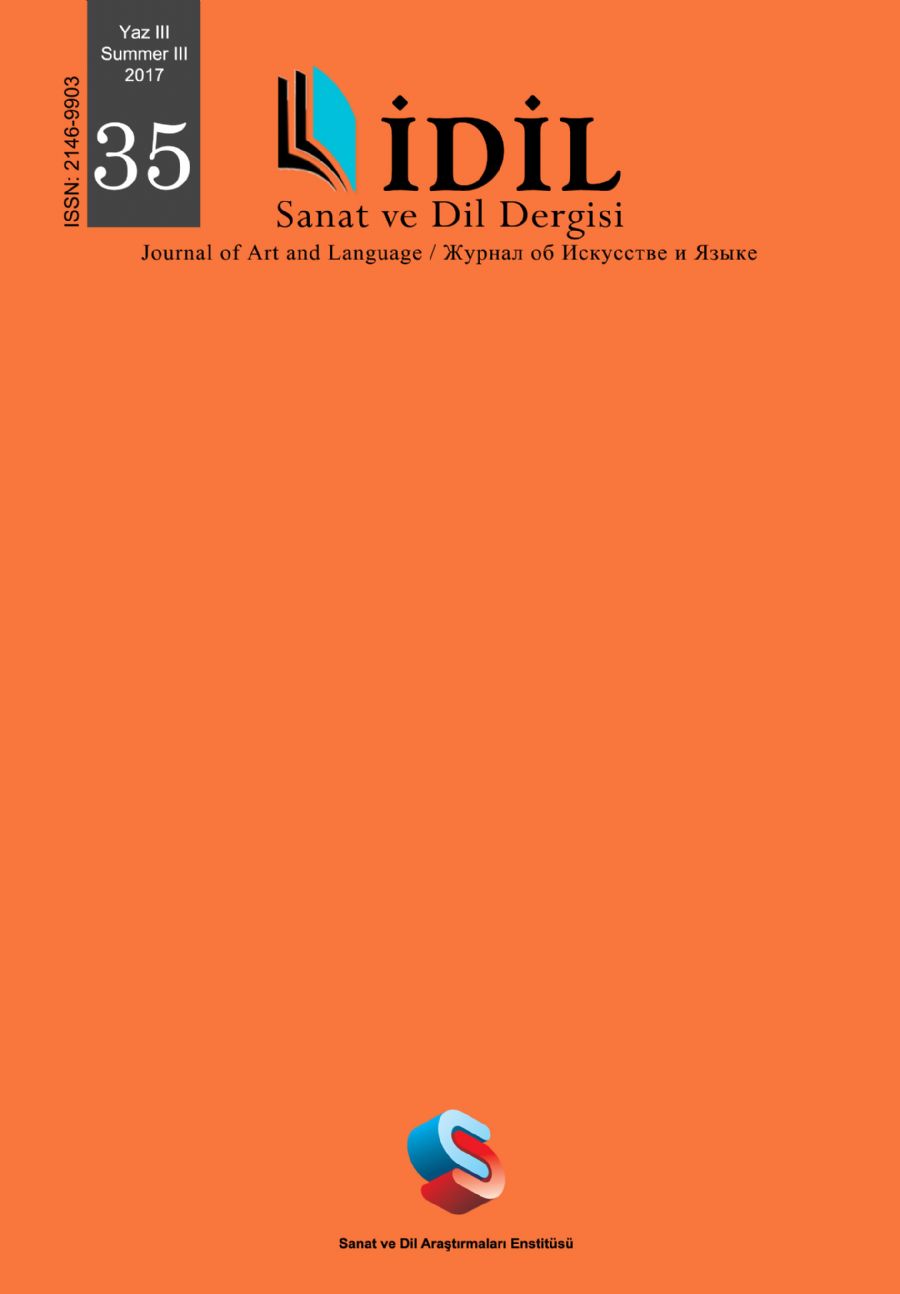CLASH OF CULTURES IN CHINUA ACHEBE’S THINGS FALL APART
CLASH OF CULTURES IN CHINUA ACHEBE’S THINGS FALL APART
Author(s): Çiğdem Pala MullSubject(s): Customs / Folklore, Studies of Literature, Recent History (1900 till today), 19th Century
Published by: Sanat ve Dil Araştırmaları Enstitüsü
Keywords: Multiculturalism; colonialism; representation; clash of cultures;
Summary/Abstract: Nigerian writer Chinua Achebe’s Things Fall Apart (1959) presents Iboland (western Nigeria) in the period between 1850-1900, covering life both before and after the arrival of British colonies and Christian missionaries. In this novel, Achebe offers an almost documentary account of the daily life, customs, ceremonies and beliefs of the Igbo people without evasion or romanticizing. Tired of the misrepresentations of Africa and the Africans in the western canon, Achebe tries to portray western colonialism and Christianity confronting an animist tribal system in Nigeria in its full complexity. His target audience is the Western readers and he wants to show that Igbo culture is also democratic, tolerant, balanced, open to progress and has a functioning belief system and an effective justice system. He is proposing that Africa is not a silent or incomprehensible continent to Europeans, in English and in the novel form which is a European genre by demonstrating the common humanity of these cultures. Commenting on Achebe’s presentation of Igbo culture in this study, I will focus on how Achebe complicates and problematizes multicultural representation and validation in his novel.
Journal: İdil Sanat ve Dil Dergisi
- Issue Year: 6/2017
- Issue No: 35
- Page Range: 1893-1902
- Page Count: 10
- Language: English

